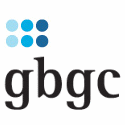State AGs Tackle New Challenges In Face Of Unprecedented Gaming Growth
USA (August 9, 2023) — In conjunction with the Eastern Region of the National Association of Attorneys General (NAAG), the Attorney General Alliance (AGA) hosted two panels on August 1, 2023 in Connecticut on current developments in gaming which were attended by several AGs and senior staff.
Following a welcome from the AG of the Mohegan Tribal Nation that emphasized the importance of dialog between state AGs and the hundreds of tribes throughout the nation, the panels kicked off by describing the unprecedented expansion of gaming in the last decade, especially online gaming and sport betting, and the host of challenges that this growth presents for regulators. They emphasized the importance of innovative thinking and a willingness to engage industry and players to combat unlawful, unregulated gaming and identify and address the social and behavioral impact of wider gambling accessibility.
Emerging Trends in Online Gaming
The first panel—presented by the Director of Government Relations of the American Gaming Association Tres York and the Executive Vice President for Global Public Policy and Government Affairs at Scientific Games Jim Schultz—noted that despite the unprecedented growth of legalized gaming over the last decade, the illegal gambling market persists, particularly in the form of unlicensed and unregulated offshore and online casinos, operators offering prop bets disguised as daily fantasy sports, and grey market gaming such as slot machine-like video game terminals, amounting to approximately $511 billion a year illegally wagered.
Grey Markets Are Changing the Face of Gaming
While the legal gaming industry has adopted codes of conduct and proactive approaches for responsible gaming and marketing, particularly of sports betting, there is no oversight, training, supervision, or recourse against operators of unlawful gambling. Search engines promote misinformation and direct consumers to online sites operated by offshore or unlicensed entities. These include online casinos, but also “courier” services that appear to be affiliated with state lotteries but, in fact, are unregulated third parties. Beyond online gaming, unlicensed, unregulated slot machine-like video games that accept money have proliferated in gas stations, social clubs, and other venues across the country. Such grey-market machines siphon 4-5% off states’ potential gaming revenue. Steps being taken by states and AGs to combat these bad actors and safeguard consumers include:
- More widespread adoption of official iLottery services through which states can offer products online;
- Legislation and regulation to clarify the definition of legal gaming; and
- Cease and desist letters, civil suits, PSAs and consumer alerts, and engagement of third-parties (e.g., internet search engines) by AGs, alone and in cooperation with each other and their federal and tribal counterparts.
Few Studies on Problem Gaming
The second panel focused on the need for the expansion of gaming to be balanced by programs and resources devoted to social responsibility. Moderated by Oklahoma AG Gentner Drummond, the panelists included Executive Director for the National Council on Problem Gambling Keith Whyte, Founder and CEO of Doura-Schawohl Consulting Brianne Doura-Schawohl, and University of Nevada International Gaming Institute Fellow Alan Feldman. The panelists expressed concern over the remarkably few studies of the impact of gaming growth on problem gaming. The panel asserted that, generally speaking, the risk of problem behavior increases as frequency of gaming increases, with approximately 5% of those who gamble each year being problem gamers. This increases to 10% of sports bettors, and the higher the education level attained, the more likely someone is to bet on sports, which has created a concentration of risk among young, male, educated, online sports bettors. At the same time, there is a huge gap in access to help: nationally, support for problem gaming averages $.33 per capita, concentrated in just a handful of states (with nine states and the federal government providing no public support whatsoever).
Problem Gaming Impacts Families and Communities Too
Even as states have rushed to legalize gaming of all kinds, there has been little corresponding investment in problem gaming, which is not only a person problem but impacts families and communities—data show that 60% of those with gambling problems will commit some type of crime to support it. While advertising for gaming, particularly sports betting, has increased exponentially, the panelists observed a lack of explanation to participants about the risks. There also has been, until very recently, a lack of funding of research into gambling, as opposed to other addictive behaviors like alcohol. The focus has been on treating problem gaming—and no one wants to admit they have a problem—instead of finding means of promoting responsible gaming focused on healthy play. The panelists suggested various policy measures to address problem gaming, including:
- Requiring a portion of gaming profits be directed to treatment and addressing harms from gaming;
- Enhanced enforcement of existing rules like voluntarily self-exclusion lists and better information sharing across jurisdictions; and
- Regulatory systems whereby gaming companies must file a plan to promote responsible gaming and have annual evaluations where they must demonstrate actual progress in implementing those plans.
They added that AI may provide tools that can assist in the future, including tracking and identifying problem gamers more quickly, but that the bigger concern is that AI instead will give rise to only more opportunities for addiction by crafting individually targeted gaming offers, bets, and odds.
SOURCE: Cozen O’Connor & Lexology
Tags: gaming, AGA, NAAG, Cozen O'Connor
























